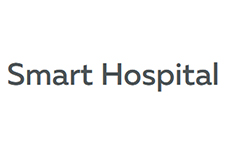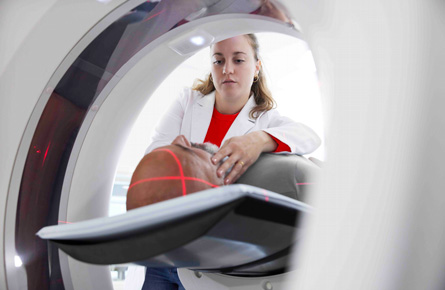Healthcare Nonprofit Transforms Patient Experiences With Smart Hospital Solution

Build an in-room concierge that reduces logistical questions for medical staff. Improve patient satisfaction and survey response rates, and test whether a voice interface can improve patient and caregiver interaction while complying with HIPAA and applicable state regulations.
Smart hospital capabilities were implemented by services from Hitachi Vantara and used Alexa development tools. A set of five skills was implemented, accounting for varying cultural backgrounds, dialects, levels of English proficiency and other factors while conveying sensitive or complicated information.
The smart hospital solution:
- Answers patient and family logistical questions immediately.
- Allows staff to concentrate more on patient care due to reduced logistical queries.
- Helps staff be more efficient with hand-free data input.
- Provides immediate customer feedback.
- Improves survey response rates.
- Maintains HIPAA and state regulation compliance.
The not-for-profit healthcare system provides a wide range of healthcare services through its network of hospitals, outpatient centers, emergency services and physicians. The nonprofit had three main goals for an in-room concierge system:
Eliminate the need for medical staff to answer rote logistical questions.
Improve patient satisfaction and response rate on state surveys.
Test the ability of a voice user interface (VUI) to improve patient and caregiver interaction by eliminating the need to key in information manually.
Meeting these goals required balancing the need for technical proficiency with integrity of protected health information (PHI). The system had to handle requests for care as well as information on dining and other general hospital information for patients and visitors.
In addition, the system was required to initiate a brief satisfaction survey that would alert the medical center to any negative experience, and enable it to take corrective action in real time. It also facilitated state-sponsored surveys at the end of the stay, which are critical to maintain reputation and operating certificates.
Using the Alexa development tools to implement a set of five “skills,” Hitachi Vantara reprogrammed Alexa to provide in-room concierge, information services and healthcare provider efficiencies for the nonprofit, while accurately capturing critical patient information. The system was architected to ensure that Alexa did not access PHI, but rather interacted with the patients anonymously. This reprogramming was performed in a manner that did not create conflicts with the Health Insurance Portability and Accountability Act or state regulations. The available interactions are:
- General information. Get information about the facility, food options and the local area.
- Patient schedule. See the next time the nurse or doctor is expected, next test or next meal.
- Log a complaint. Choose the option to register a complaint, which triggers a remedial process prior to the final survey.
- Patient satisfaction. Periodically “check in” to assess patient satisfaction and thereby seek better scores on ultimate official survey.
- Note taking. Capture key health information through interactive functionality without violating privacy or HIPAA requirements.
The most challenging aspect of this project involved the variability of language between staff and patients. It was critical that the skills compensate for different cultural background and dialects, different levels of English proficiency, age, sex and other factors while communicating complicated information. The original scripts provided by the nonprofit required significant optimization using a phonetic scoring method to compensate for language variations and technical complexity.
AWS Services Used
The smart hospital solution included the following Amazon Web Services offerings:
- Alexa: reprogramming for interactive and technical communications.
- S3
- Lambda
- SNS
- DynamoDB: for automated status, logging and process closeout and feedback.
Benefits of the smart hospital solution included:
- Benefits of the smart hospital solution included:
- Allows staff to concentrate more on patient care due to reduced logistical queries.
- Helps staff be more efficient with handfree data input.
- Provides immediate customer feedback.
- Improves survey response rates.
- Maintains HIPAA and state regulation compliance.
1 HIPAA = Health Insurance Portability and Accountability Act

Realize and deploy any-where future by modernizing your legacy applications and becoming agile and efficient.

